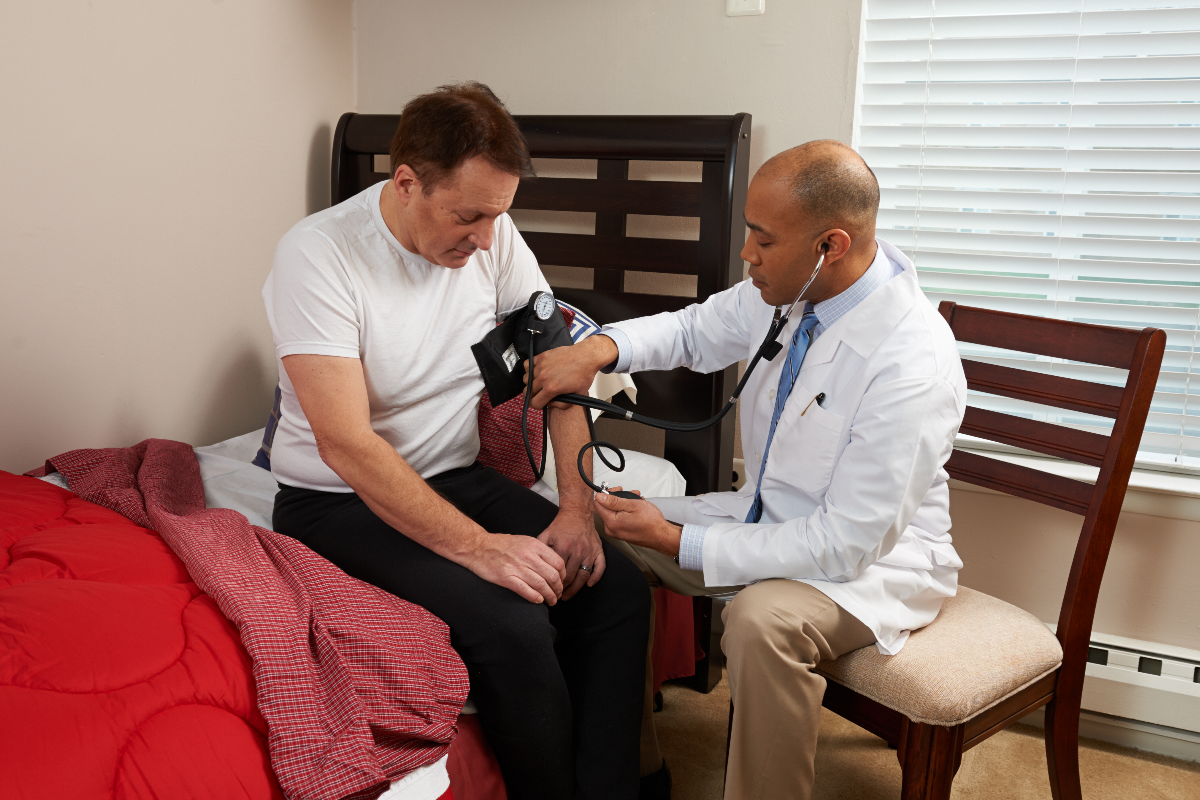Hospice Talking Points for Physicians

When a patient is facing a terminal diagnosis, the earlier a physician introduces hospice as an option, the easier it is for patients to understand its benefits when the time for a referral arrives. Beginning the conversation early in the patient’s journey allows them and their family to explore all of the options for care along the way.
One thing to keep in mind when discussing hospice with patients is that many of them are not aware of how hospice services work. They may also harbor misconceptions, which too often results in them waiting and missing out on many months of support.
Important Benefits of Hospice
By addressing the following talking points when discussing hospice with patients, physicians can work to effectively educate them about the true benefits of the service.
Hospice provides support when and where you need it.
Many people think of hospice as a place where you go in your final days. While in-patient hospice homes do exist, most people who receive hospice care do so in the comfort of their own home or an assisted living facility where they are already residing. Knowing a loved one can receive hospice care in their residence is often a great relief to family members who are struggling to provide care while honoring their loved one’s wishes to remain at home.
There’s no cost for medication, equipment, and supplies related to a terminal diagnosis.
Hospice care is a Medicare Benefit that is covered at 100%. There is typically no cost to the patient or their family for these services. In addition, once hospice service begins, all of the medication for the patient’s terminal diagnosis will be provided at no charge to the patient. If a patient is not Medicare or Medicaid eligible, most private insurance provides the same hospice coverage, although copays or deductibles may apply.
Necessary medical equipment and supplies are also delivered to the home with no cost to the patient or their family. This not only saves money for families, it allows them to spend more time with their loved one instead of rushing out to pick up medication or supplies.
Hospice focuses on quality of life.
When discussing a patient’s goals, whether that be with the patient or their family, pay attention to what is important to them. While some patients wish to explore every possible treatment option regardless of side effects, some patients would prefer to accept their terminal diagnosis and focus on making the most of the time they have left. Starting hospice services earlier rather than later provides them with a team of experienced hospice professionals who will work to control pain and manage their symptoms so they have the highest possible quality of life.
Hospice is extra care – not an end to care.
Families will sometimes be told that “there is nothing left to do” when hospice is recommended. This gives an inaccurate picture of hospice care. There is always more care that can be provided to terminally ill patients. This is why patients receive visits from a variety of disciplines to address their physical, mental, emotional, and spiritual needs including nurses, aides, social workers, chaplains, bereavement coordinators and volunteers.
While it can be a difficult conversation, offering patients of a variety of recommendations – including hospice care – will give patients the opportunity to make the best choices for themselves. To learn more about the services Crossroads Hospice & Palliative Care provides, please call 1-888-564-3405.
If you found this information helpful, please share it with your network and community.
Copyright © 2018 Crossroads Hospice & Palliative Care. All rights reserved.




